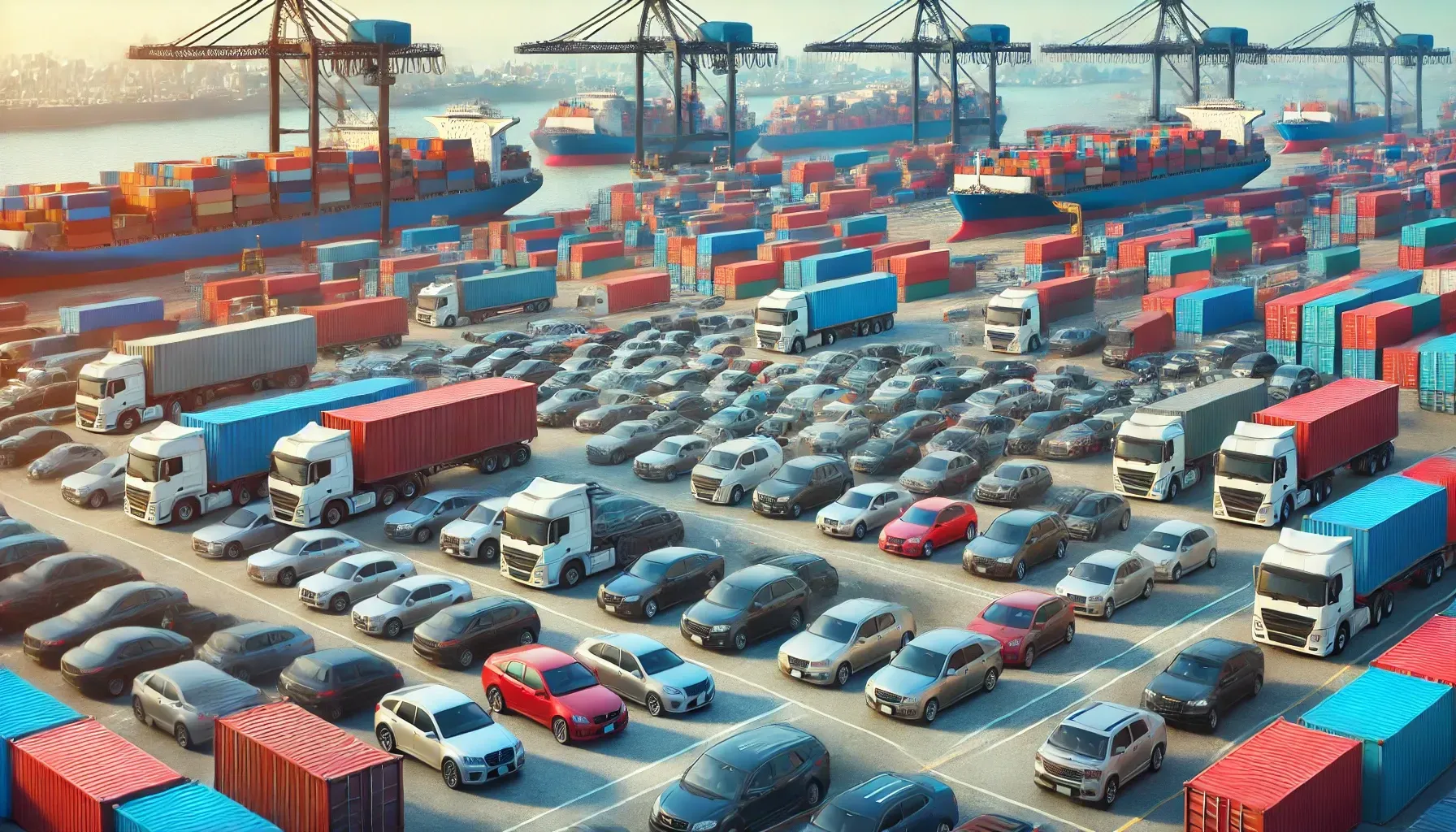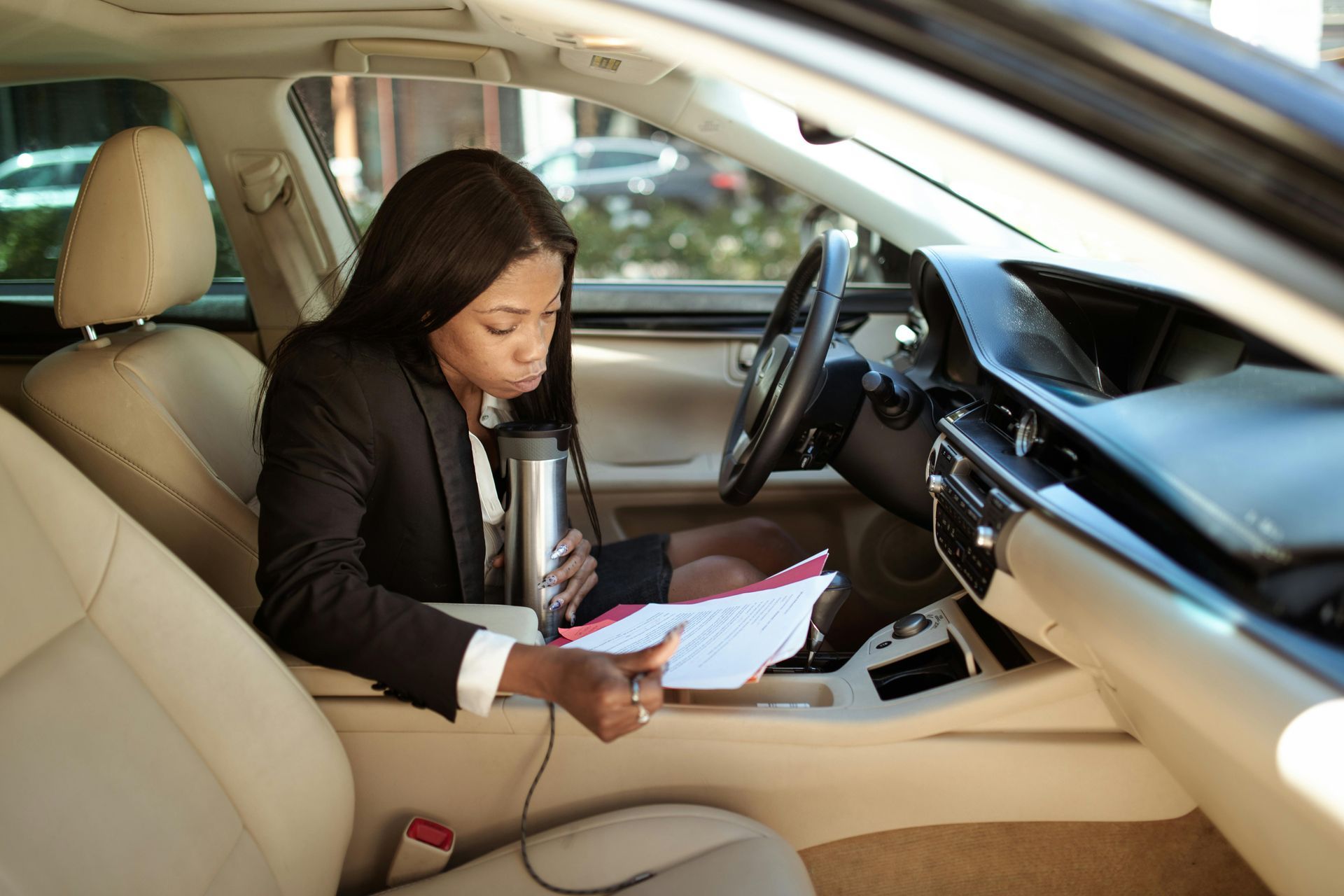The Most Common Reasons of Auto Shipper Delays
September 25, 2023
Unveiling the Causes Behind Delayed Auto Shipments: A Closer Look
If you keep driving your automobile for a while, eventually it will develop certain problems. You know the drill: oil changes, tire rotations, fluid top-offs, brake services. Truckers in general, including auto carriers, face the same challenges. When a tire on your automobile blows, it may be easily fixed with a spare or quickly towed to a tire shop.
When a carrier blows a tire, it’s a minimum $500 fix that will require a tow to a dealership or shop that can handle such large trucks.
That’s a big difference.
Because they travel 10 times farther than a typical car, auto transporters frequently experience delays. Right, ten times as many miles equals ten times as many issues.
In this article, we'll go over a few of the typical causes of car shippers' delays or dispatch cancellations. We make a lot of effort to partner with reputable carriers on the road, but there are only so many things we can control. Therefore, if there is a problem and your car needs to be shipped to someone else, it is usually for one of the following reasons.
Reason 1: The truck breaks down
The truck breaking down is the main cause of pickup and delivery delays. Whatever the cause—mechanical, engine, or trailer—something on the vehicle broke.
Many vehicle transport businesses use outdated fleets. Not much change happens quickly in the logistics industry's auto transport sector. Even yet, there are many trucks transporting automobiles that are more recent—within the previous 5 to 10 years—as well.
Would you believe it if I told you that problems are typically caused by newer trucks?
It sounds strange, but it’s true. Newer trucks have to be built to more stringent guidelines and feature a lot more technology than older trucks. It’s these new guidelines and the added tech features that often end up causing issues that lead to trucks breaking down.
When a truck breaks down, it is often off the road for at least a week. Sometimes the fix is minor and can be done in a day or two, but that’s not as common.
The reason why it takes so long is that the driver is often in an unfamiliar area and not able to get it to their preferred mechanic. When that happens, they have to search for a qualified big rig tech. Then, they have to have the rig towed or moved to the shop.
They must wait for at least a few days after the vehicle has been in the shop for the technician to examine it and determine the issue. It will take them an additional few days or maybe a week if they need to wait for components. After that, they have to wait for the remedy before paying for it.
Truck breakdowns are awful. However, given the number of miles such carriers go, it is always a matter of when rather than if.
You often have the choice of waiting or relisting your vehicle to locate someone more soon when a carrier breaks down. For canceling a dispatch and relisting a car, there are no costs.
Reason 2: Inclement weather
Inclement weather is a significant factor in the delays experienced by carriers. Because Mother Nature is harsh and unyielding, vehicle transporters are always up against the elements.
Inclement weather is less of a concern in the spring and fall. The two severe seasons of summer and winter are when shippers experience the biggest weather-related delays.
It is not unexpected. We recently saw countrywide sweltering heat waves and big wildfires in the west. Trucks that have overheating problems due to sweltering weather may break down if their cooling systems are overtaxed. When this occurs, carrier cancellations frequently occur as a result of the difficulty of repairing the cooling systems.
During the winter, we saw Buffalo, New York inundated with feet of snow. Just a few weeks ago, a massive cold front swept across the entire nation from Washington to Georgia, freezing routes and dumping massive amounts of ice and snow across the north. When ice and snow are that bad, nobody’s moving, least of all auto shippers.
Car haulers drive to make money. Time is money for them in a very real way. So delays due to inclement weather end up costing them a lot of money due to reroutes and delays.
Unlike a truck breakdown, though, delays due to inclement weather rarely result in cancellations. Just delays.
Of course, you can still cancel your dispatch and relist for free if necessary. However, when it comes to inclement weather, we advise against that because, well, we can’t control the weather. The delay will just happen to the next carrier as well, at least until the weather clears.
Reason 3: Cancellations from other companies
Although it may not be the main cause of vehicle shippers being delayed, there are other factors.
In a single journey, auto carriers may carry up to 10 vehicles. But because each of the ten automobiles belongs to a different person, they must move from one pickup or delivery site to the next, picking up and distributing items along the way. And many businesses have agreed to supply such cargoes.
These businesses occasionally have to cancel cargo with the carrier. To fill up his truck and still make money on the initial journey, the driver must travel somewhere else if enough cargo is canceled.
This happens infrequently, and usually on routes that aren’t popular. Auto haulers like to stick to major highways through major metro areas. Many carriers will be happy to travel on other routes, so long as they make enough money. Some companies just run bad routes and pick up freight as they can because someone has to go to Idaho and Utah, right?
But sometimes, no matter what the carrier does, things outside of their control prevent them from running their planned route.
When this happens, we work hard to get a new pickup date or to see if the carrier has any other drivers. We do it whenever a carrier cancels, but this is when it’s the hardest. Most carriers that cancel because of other cancellations don’t operate many trucks. So they don’t have other drivers that can go get it, and the original driver won’t even be in that area.
If they are unable to pick you up, we will post your car again and locate a replacement carrier at no additional cost to you. For this reason, we frequently add carriers to our list of people we shouldn't work with since the contract they sign to transfer your vehicle is legally binding and can't be broken.
Reason 4: Illness/family emergency
Everyone, even car transport truck drivers, is susceptible to illness at any moment. A driver is unable to operate a vehicle if they are too ill to do so. Transport businesses will trust a driver if they claim they are too ill to drive since the danger of making them do so is too high.
Keep in mind that some of these vehicles maybe 80 feet long and 80,000 pounds in weight when completely loaded. That is a lot of metal, and at 55 mph, even the slightest mistake might spell disaster. When driving, drivers must give it their all because errors can result in the loss of goods or even human life.
So when carriers tell us that their drivers are too sick to drive, we believe them. It doesn’t happen often – usually more in the fall and winter months because it’s cold and flu season. Many times they are sidelined for a couple of days and then get back on the road thanks to modern medicines.
Full cancellations are frequently the consequence of family situations, as drivers frequently take their entire truck home to take care of their families. A driver once outright resigned from his position because he was unable to care for his family while on the road.
Unfortunately, illness and emergencies may happen to anybody at any moment, which is another reason why transportation is delayed or even canceled. But as always, if the carrier cancels for this reason, we will be happy to relist your vehicle at no additional cost.
Reason 5: Other Customers
Other consumers are a significant component that might also contribute to delays. Transporters move automobiles for up to 10 distinct clients at once, as was previously noted. In other words, they have 10 separate cars to pick up in one location, and then 10 different vehicles to deliver to locations close to your destination.
This indicates that there are a good number of potential locations for delays. Even a few-hour delay in picking up just one or two of those trucks might cause delays to linger for days. The same holds for delivery.
Customers' availability is the primary factor in delays with pickup or delivery.
Carriers keep their hours, and while most operate during normal business hours, not all do. This means that pickups and deliveries can happen early in the morning or late at night. If a customer is not available when a carrier goes to pick up and deliver, they have to wait or rearrange their schedule.
This waiting or rescheduling causes problems for other vehicles they have to pick up and deliver. More importantly, they cause delays. Patience with your carrier, as with all things, is appreciated by them and by us.
Rarely, if ever, do these circumstances cause cancellations. When they do, it generally occurs on the pickup side due to cancellations like the ones we previously discussed. Even though it's not very common, we'll relist your car for free if they cancel. Usually, it merely means that you have to wait longer for the driver to pick up or deliver your vehicle.
Reason 6: Inspections and Weigh Stations
The final main source of delays or cancellations is the Department of Transportation inspections and weigh stations.
Auto transporters may only travel 11 hours per day and average 500 miles per day. When their hours are up, they must stop driving and wait for their time to be reset. If they are delayed with other pickups or deliveries, this reduces their drive time. This extends the time between pickup and delivery for their consumers.
They must also deal with computerized timecards. To remain in compliance, they must fill these out and submit them at each weigh station along the route. Electronic timecards have recently become mandatory, replacing the old system of manual timecards. Every time they stop at a weigh station, their logs are checked. This takes time, and they’re usually idling for it – we’ll talk about why this is important in just a moment.
Let’s talk about DOT
inspections. Inspections pop up all the time, especially at weigh stations. When DOT inspections
occur, drivers are on the clock during the inspection. This means that they’re sitting at a weigh station idling eating their driving time.
Let’s give an example. Say a carrier starts their day and drives two hours, then waits four hours at a weigh station for an inspection. The inspection takes an hour, maybe. After that, they’re back on the road. Great! But they’ve spent 7 of their 11 hours already – that leaves just four hours of drive time for the day.
Five hours sitting idle hurts trucks and causes delays. Not only that but when DOT inspections crop up, they’re usually at multiple weigh stations. These weigh stations often have lines, and even if they already passed an inspection they still need to be weighed and show their compliance to the DOT officials.
If a carrier is found to not comply with DOT regulations, their operating authority will be revoked until they comply. Oftentimes carriers get non-compliance revocations because of nit-picky things such as brakes or tire pressure. These are easy fixes that only take a few hours to a day.
If a carrier is determined to be out of compliance for other, more serious reasons, such as license difficulties, cancellations may occur. We work hard to guarantee that all of our carriers follow all DOT rules. We also have stringent rules for transporters. However, the DOT will occasionally require compliance from even the greatest carriers.
The severity of the offense will decide whether the flight is delayed or canceled. If there is a delay, we will notify you. If there is a cancellation, we will relist your vehicle at no cost and will most likely place the carrier on our do-not-use list for failing to comply with DOT requirements.
We take the automobiles of our clients seriously. We only work with the finest to guarantee that our customers are in good hands from the moment they book to the moment they receive their order.
Ship today with Budget Auto Transporter
Ready to Ship? Choose Budget Auto Transporter! If you're looking to transport your vehicle, we're here to assist you. With over 20 years of experience, we've been dedicated to helping our customers move their vehicles efficiently and safely.
Our deep knowledge of the auto transport industry enables us to seamlessly relocate your vehicle to or from any destination, always on schedule and within your budget.
But that's not all. We excel at working with top-tier carriers, setting stringent standards for excellence that exceed industry norms. From the moment you make your booking to the safe delivery of your vehicle, it's in expert hands.
Visit our website for a free quote
or call us at 844-436-6700
to speak with one of our representatives. They're ready to address your inquiries, provide a quote, book your order, and more. Whatever you're shipping, trust Budget Auto Transporter to get it there with care.














